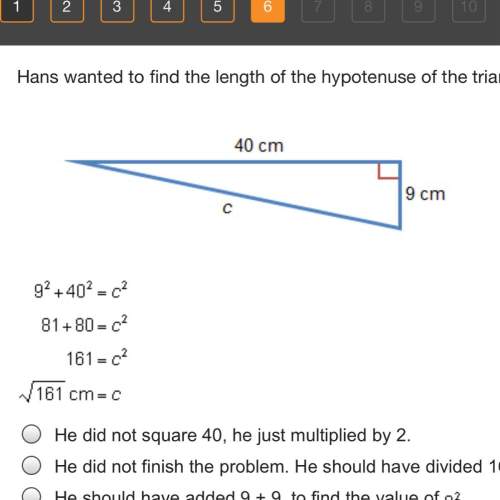Measurements of scientific systems are always subject to variation, some more than others.
the...

Mathematics, 23.10.2019 20:00, bangbrokevo5685
Measurements of scientific systems are always subject to variation, some more than others.
there are many structures for measurement error, and statisticians spend a great deal of time modeling these errors.
suppose the measurement error x of a certain physical quantity is decided by the density function
f(x)=k(3−x2), for −1≤x≤1,
f(x)=0, elsewhere.
(a) determine k that renders f(x) a valid density function.
(b) find the probability that a random error in measurement is less than 1/2.
(c) for this particular measurement, it is undesirable if the magnitude of the error (i. e., |x|)
exceeds 0.8. what is the probability that this occurs?

Answers: 3
Other questions on the subject: Mathematics

Mathematics, 21.06.2019 16:20, angelb2472
Consider the function y = f(x)=3^x the values of f(1/2) and f(1/4). rounded to the nearest hundredth, are__and__ respectively
Answers: 3

Mathematics, 21.06.2019 21:30, Kizmit1423
How does reflecting or rotating a figure change the interior angles of the figure?
Answers: 2

Mathematics, 21.06.2019 23:20, puremousetail
6cm10 cma conical paper cup has dimensions as shown in the diagram. how much water can the cup hold when full?
Answers: 1
Do you know the correct answer?
Questions in other subjects:




Mathematics, 12.12.2020 16:00


History, 12.12.2020 16:00


Mathematics, 12.12.2020 16:00








